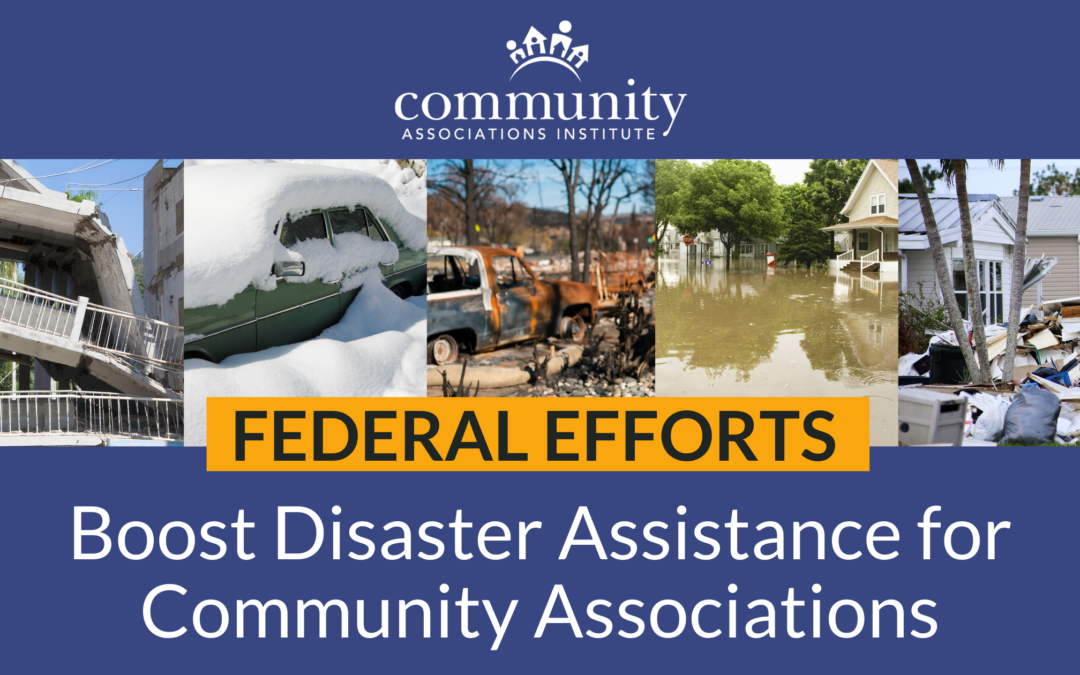Anyone who has lived in or worked with community associations knows that planning and preparation for natural disasters matters. That is why it is encouraging to see policymakers in Washington, D.C., take steps to make disaster recovery less complicated for common interest communities.
CAI is pleased that Rep. Jerry Nadler (D-NY) has committed to introducing disaster assistance legislation this year in the U.S. House of Representatives. Rep. Nadler’s legislation, the Disaster Assistance Equity Act (DAEA), streamlines the approval process for the Federal Emergency Management Agency (FEMA) to reimburse local governments for the cost of removing debris from community association roads. It also allows condominiums and housing cooperatives to use FEMA disaster assistance payments to fund critical repairs for common elements. The DAEA helps community associations plan for disasters and will improve recovery coordination with local emergency management officials.
Close collaboration between associations and local officials is becoming more important in disaster planning. Earlier this year, FEMA announced a planned expansion of its Building Resilient Infrastructure and Communities (BRIC) program. The BRIC program funds local projects that reduce the cost of future natural disasters by limiting or preventing damages. If approved by President Joe Biden, the revamped BRIC initiative will make up to $10 billion in federal grants available to state, municipal, and tribal governments for disaster mitigation and community resilience projects.
Because community associations are nonprofit organizations, they are not eligible to apply for BRIC grants. However, associations can benefit from these grants by working with local emergency management and planning officials to support BRIC-funded projects that reduce future damages from flooding, wildfires, and other natural disasters.
Now is a good time to review and update your community’s disaster response and recovery plan. For more information on steps associations can take to prepare for disasters, visit CAI’s website.
To stay up to date on state and federal government actions that impact community associations, subscribe to CAI’s Advocacy Blog.



